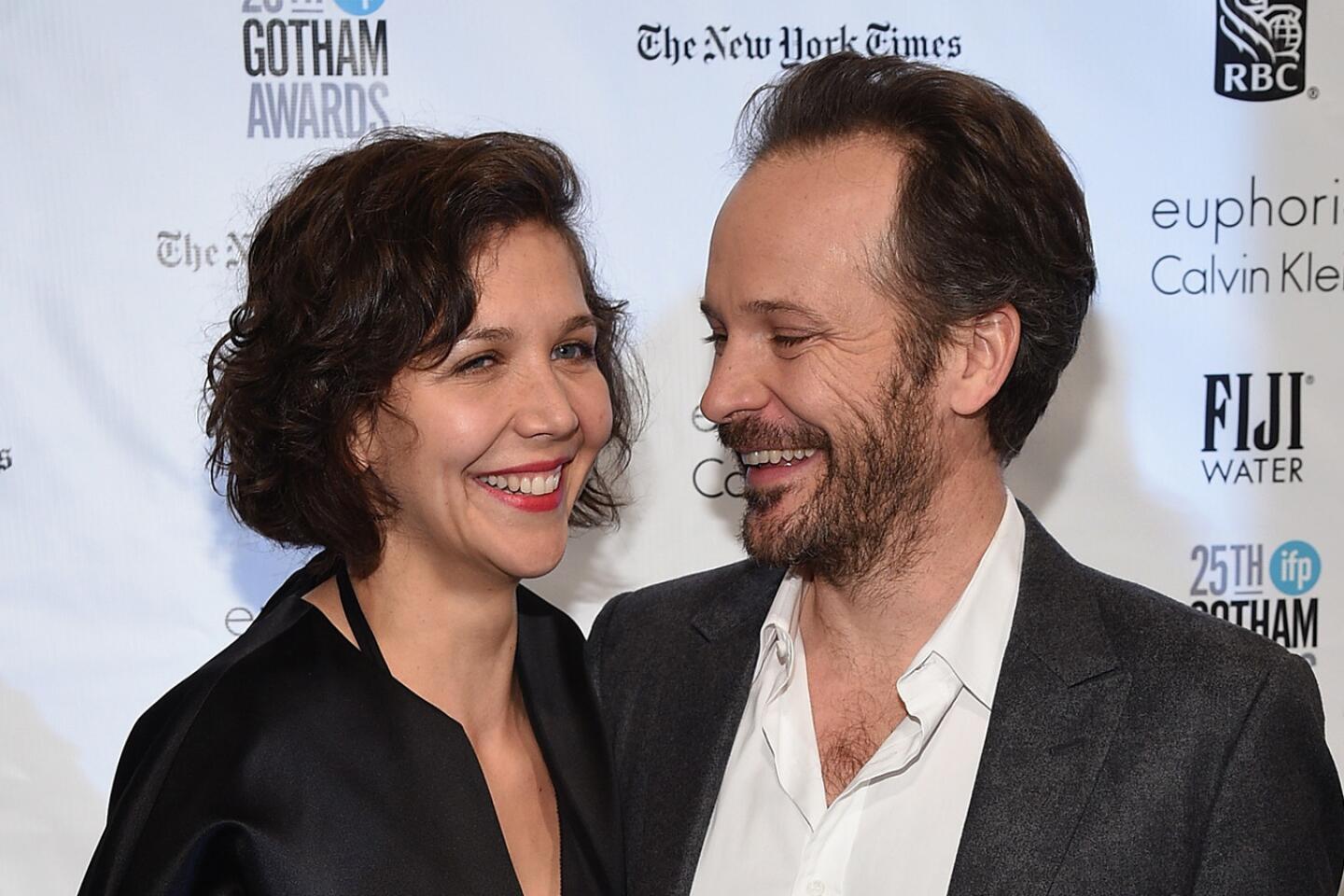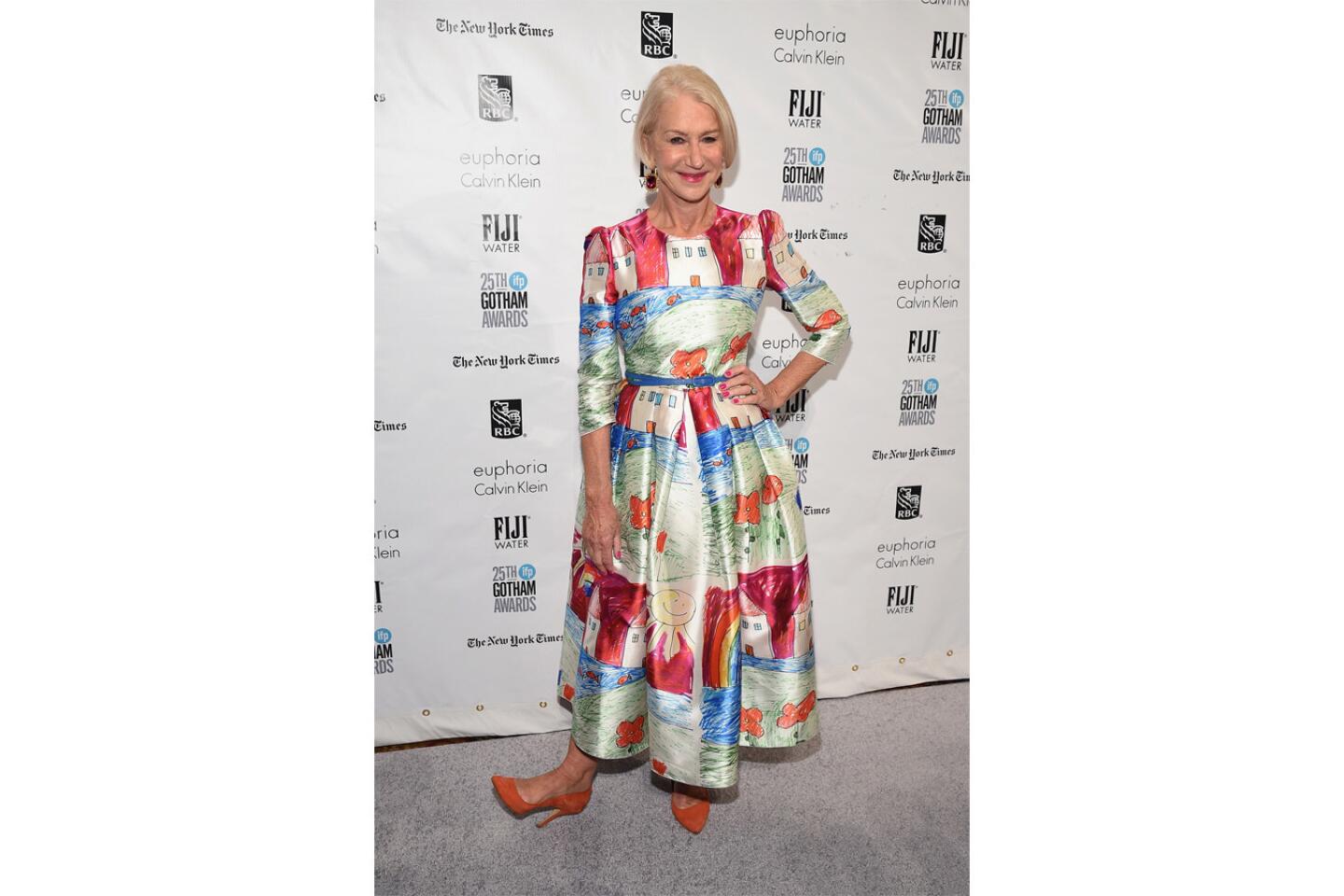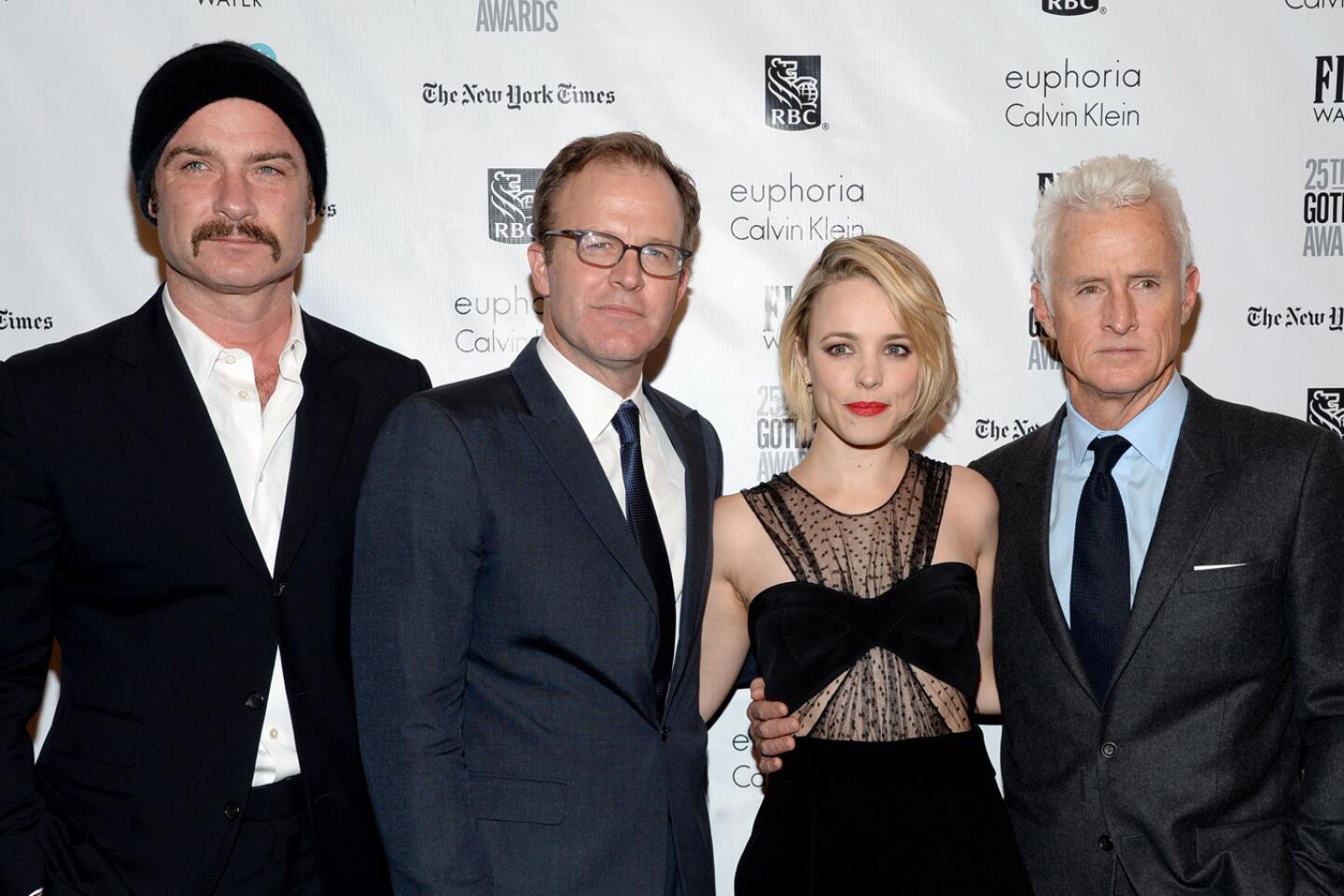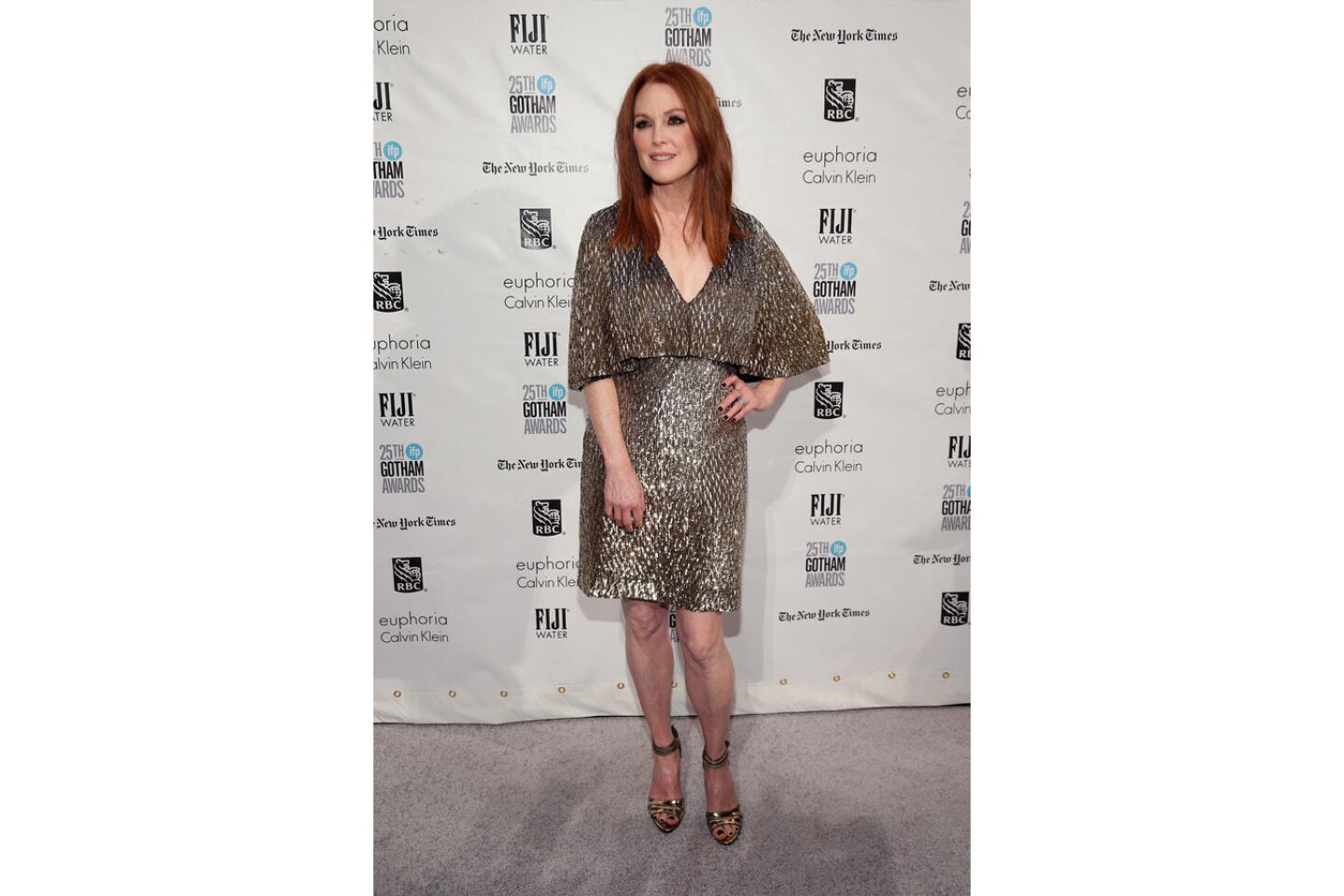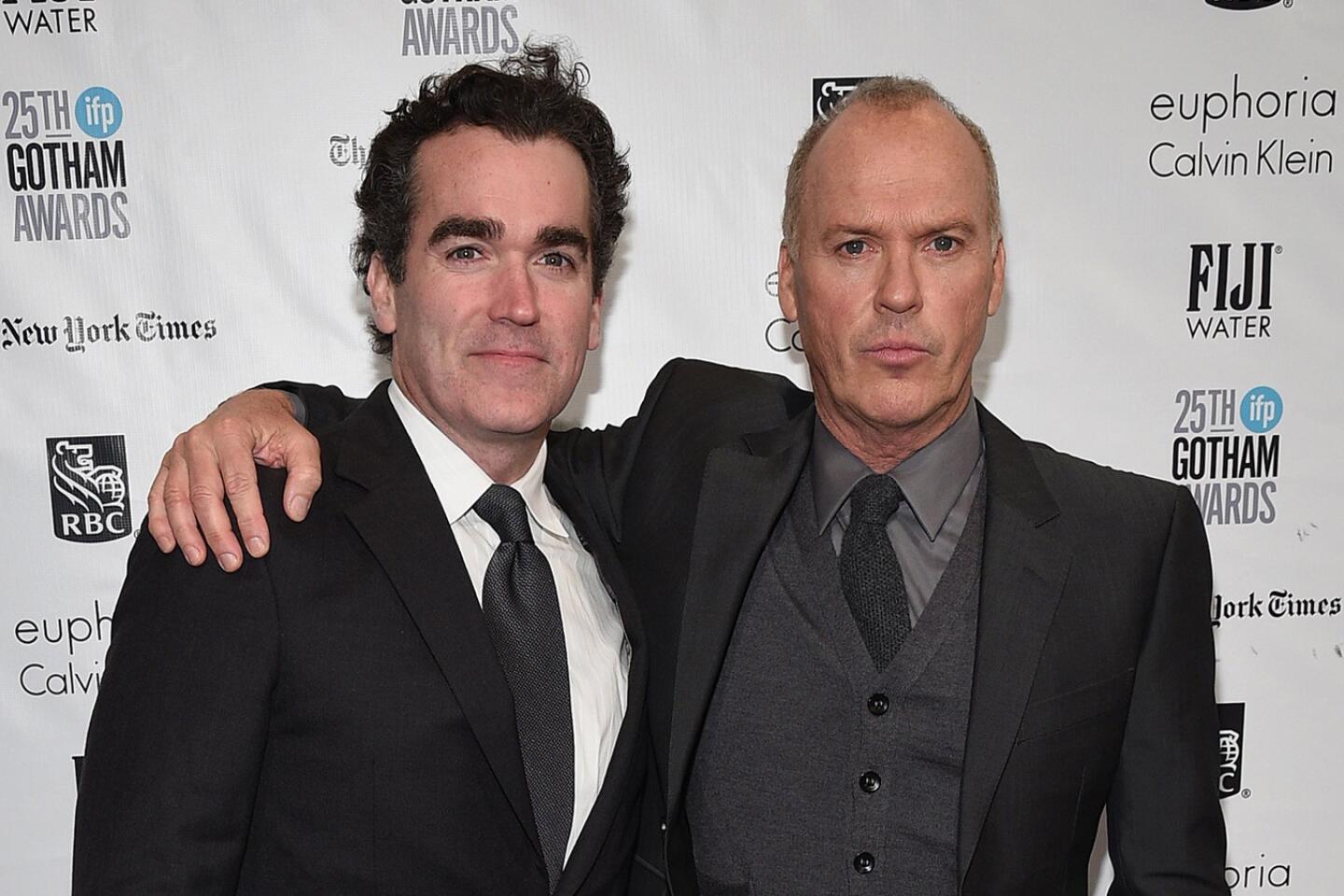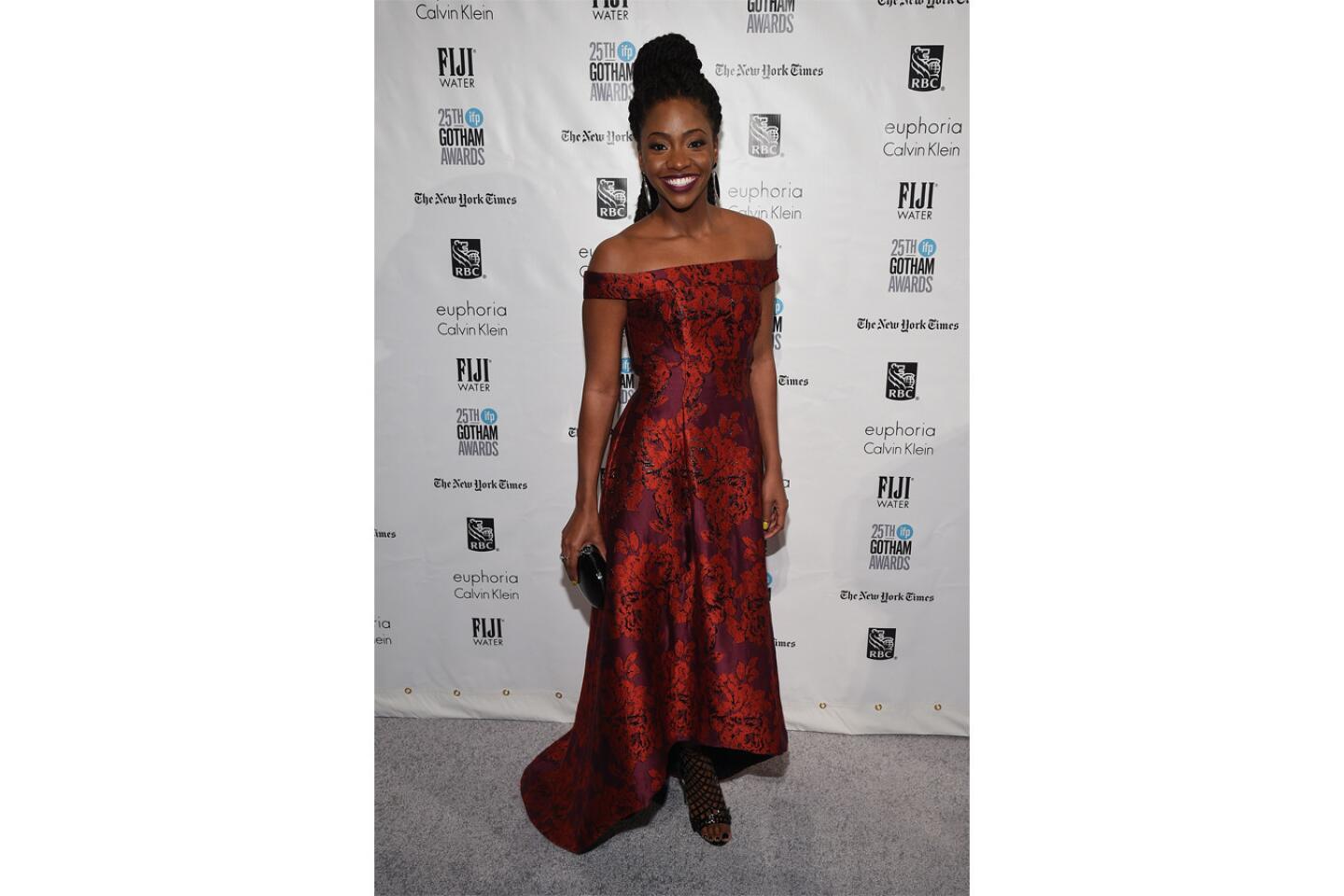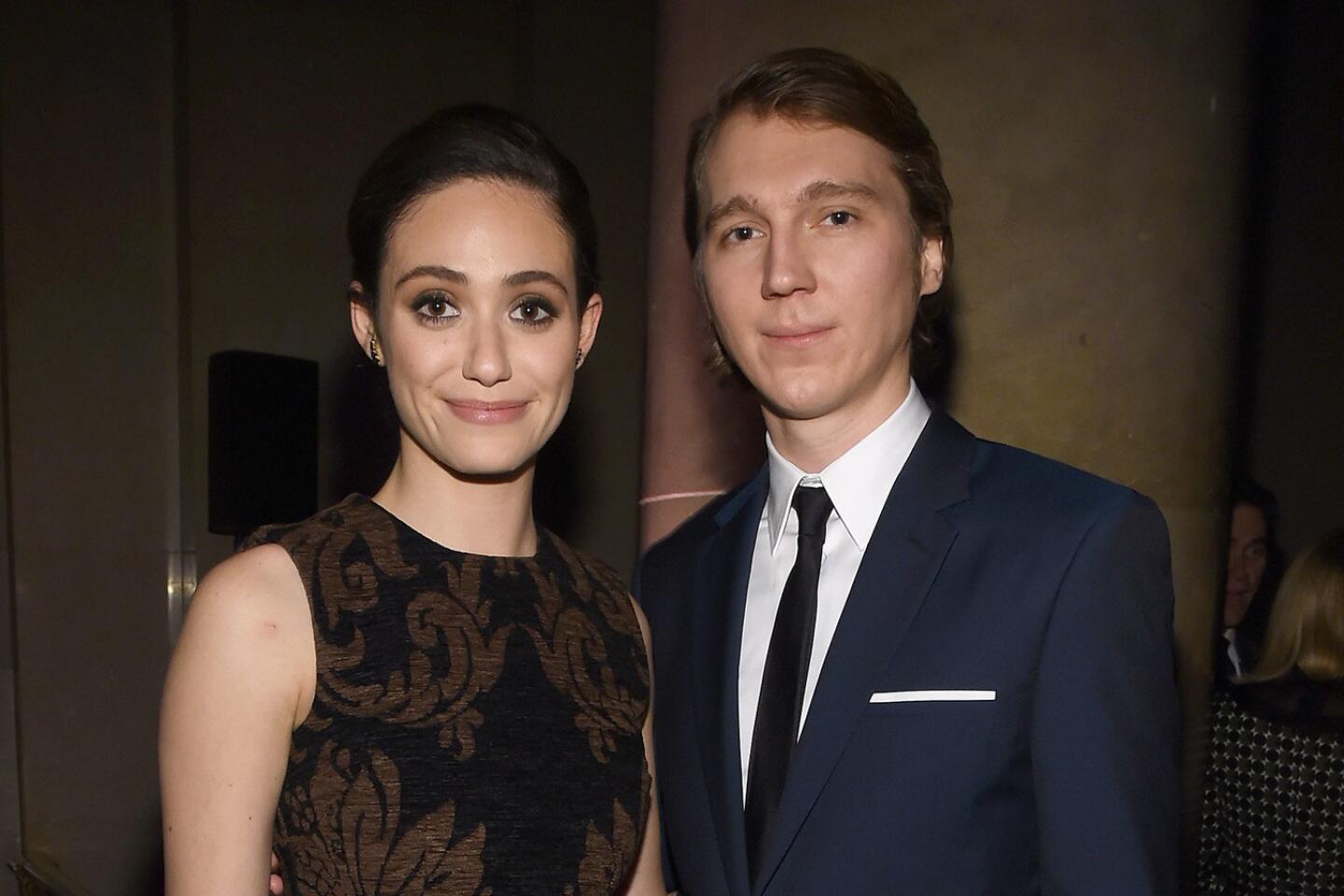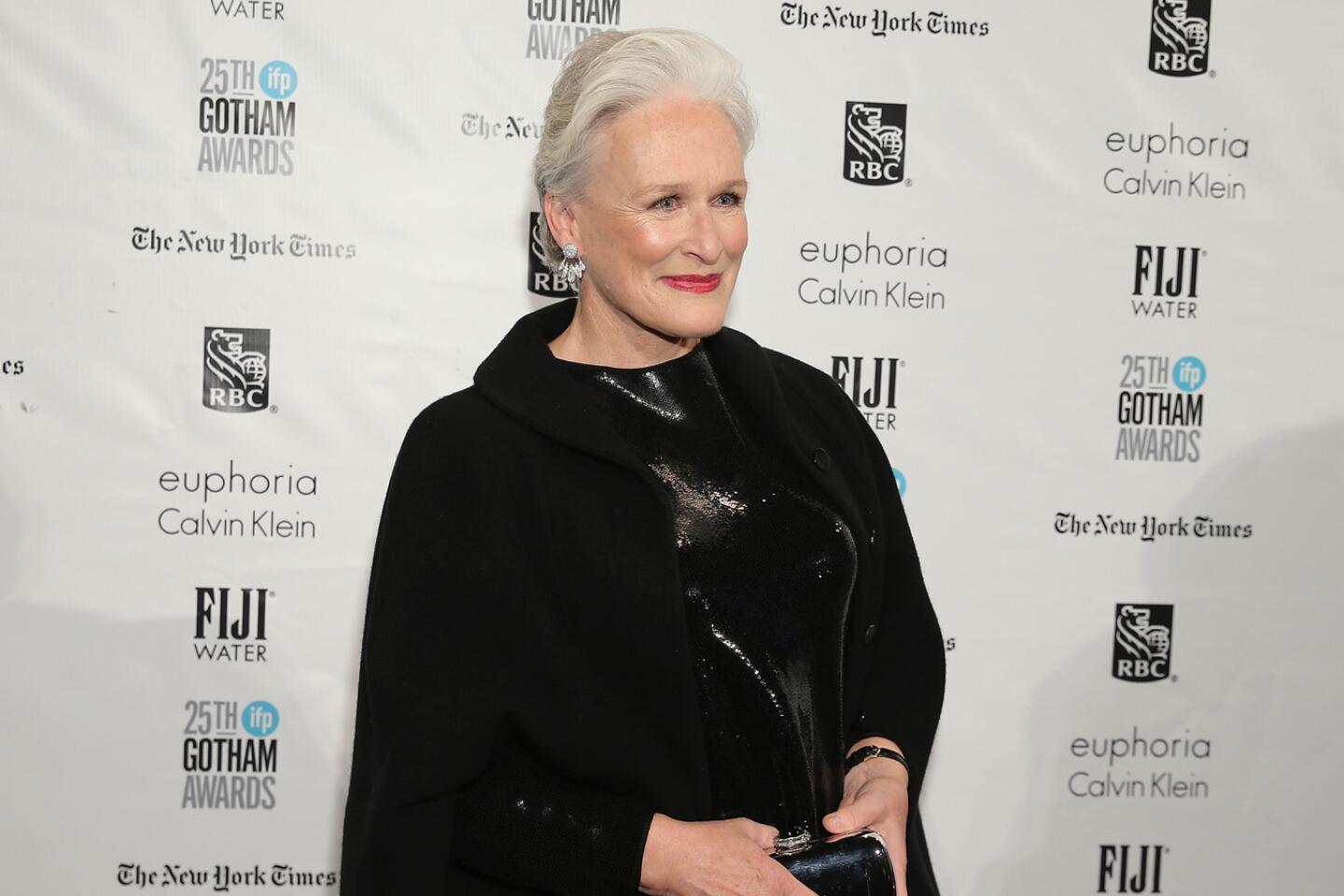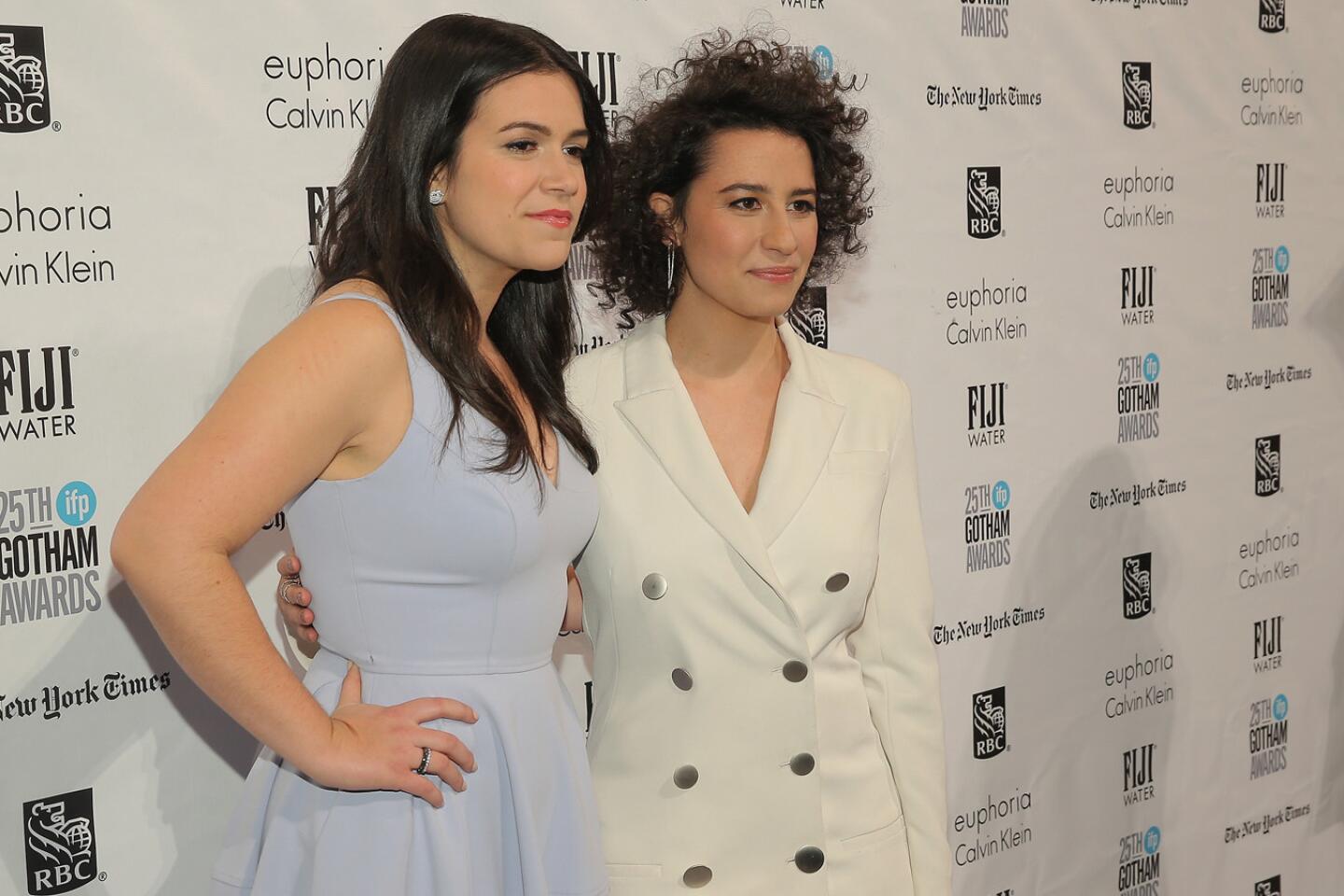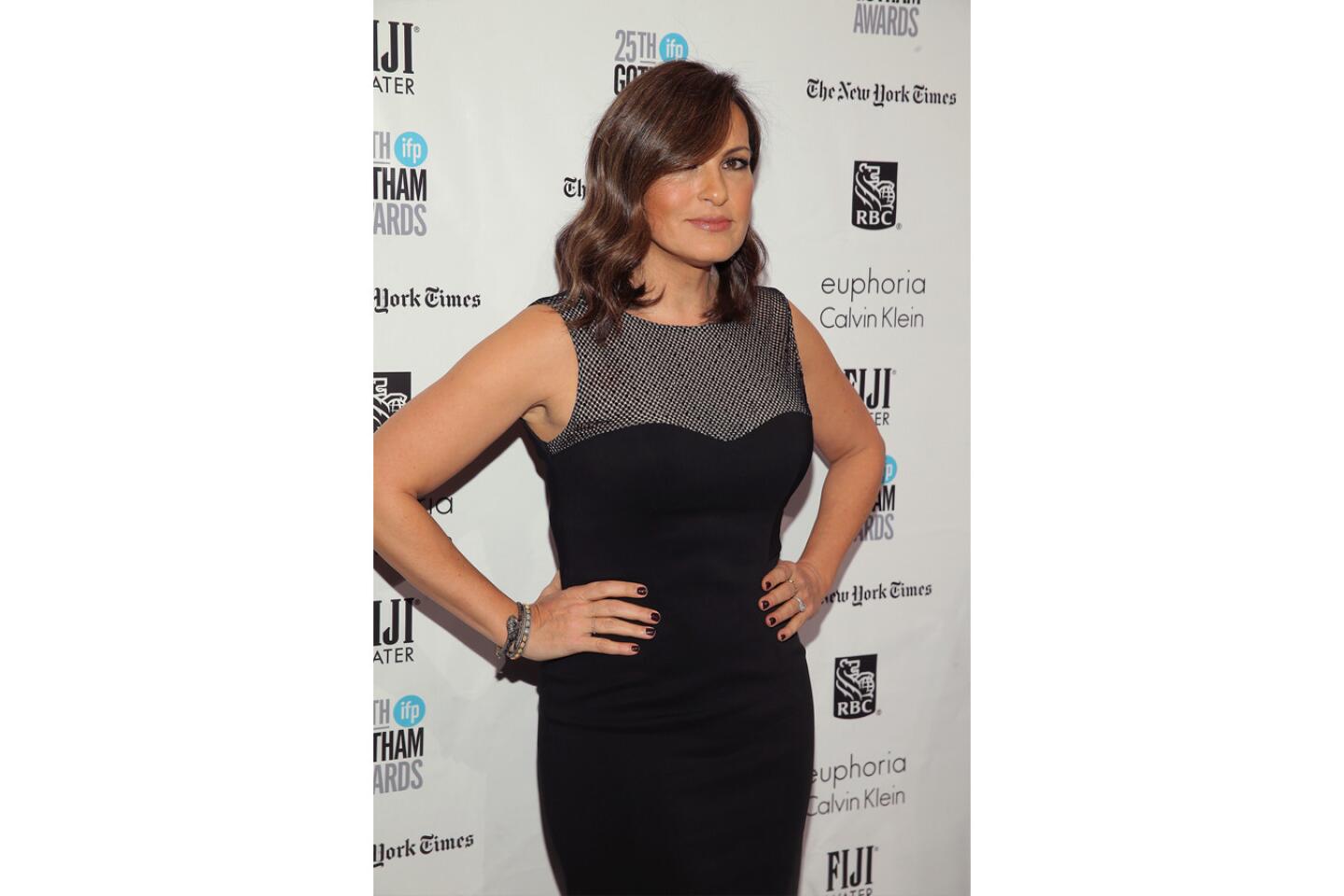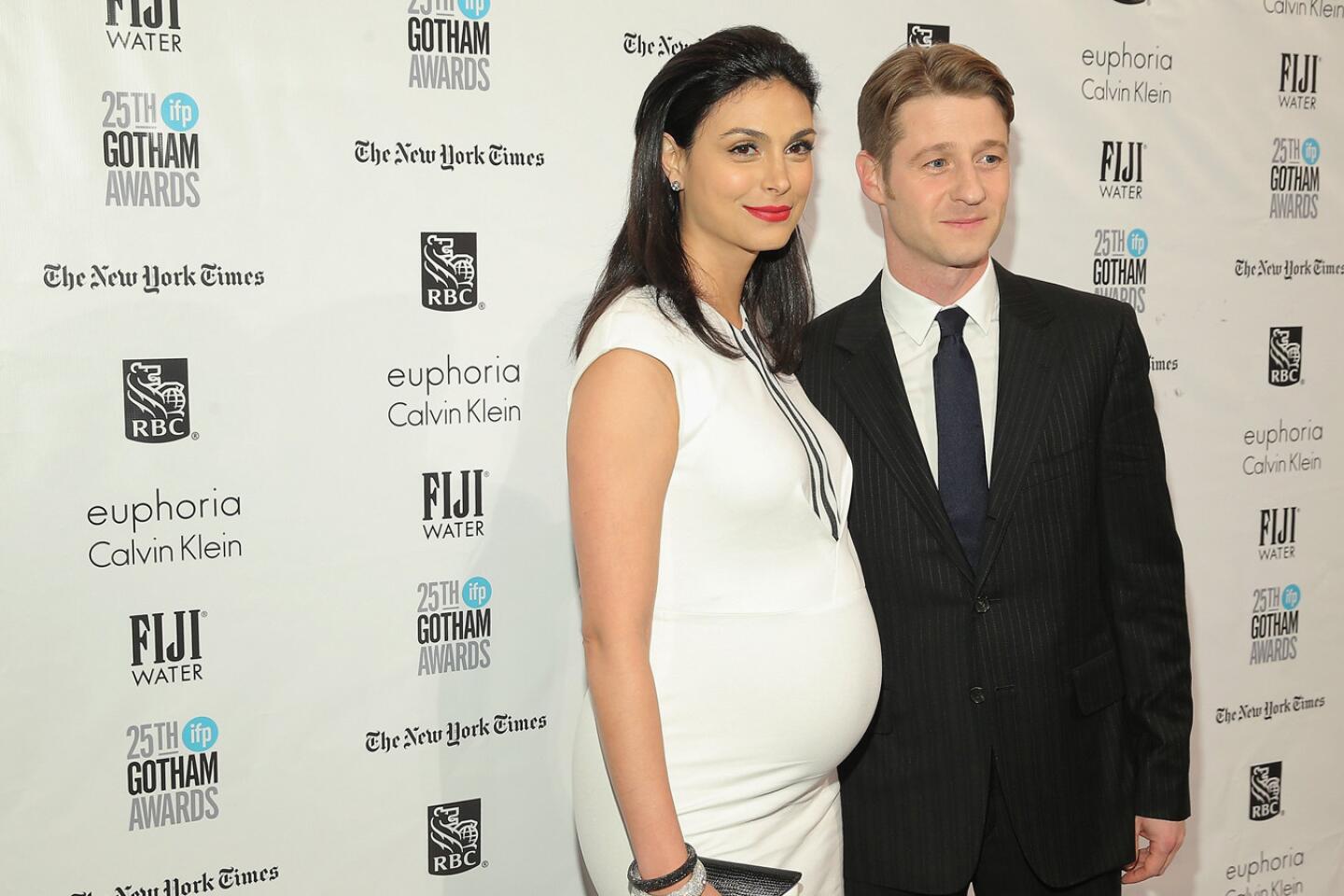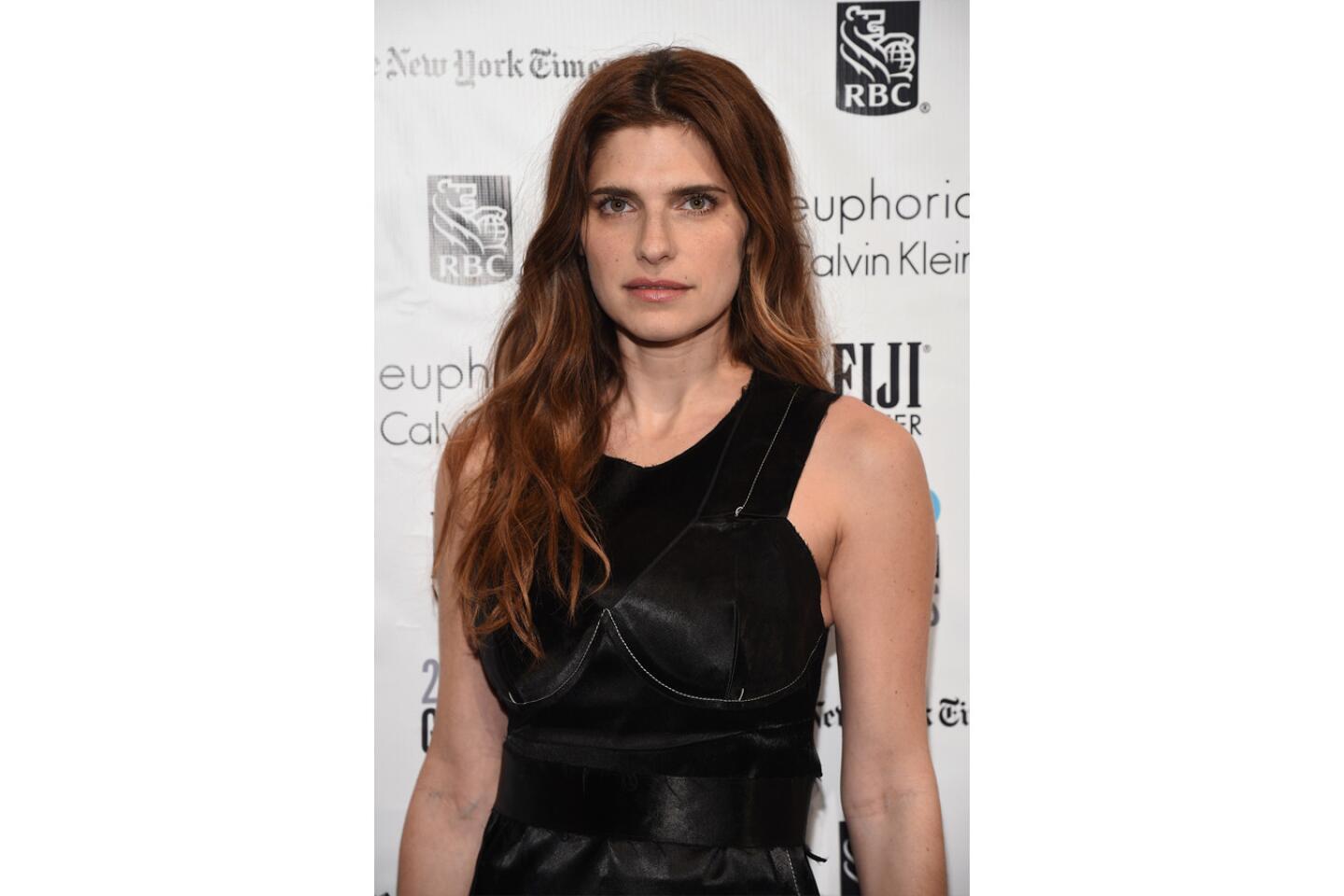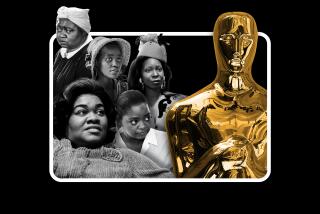The Gothams: Six takeaways from an early-season awards show
Unlike prizes from the actors or directors guilds, Monday night’s Gotham Awards aren’t a significant tea leaf for the Oscars, since the former focus on independent film, and there’s almost no overlap with the Oscar voting body anyway. Plus without major television exposure, the Gothams are unlikely to create instant memes or rock the Internet a la the Golden Globes.
But as one of the year’s first award shows (the first, if you discount the nebulous Hollywood Film Awards), they can still play an important role. The ceremony, which takes place on a celeb-heavy night in New York right after Thanksgiving weekend, sets the tone for the season to follow, and often also provides a hint of strategies and results to come.
SIGN UP for the free Indie Focus movies newsletter >>
Last year, Julianne Moore’s best actress speech — in which she displayed what might be called the force of charm over substance — gave an inkling of what we’d see in many such speeches; the best feature win for “Birdman,” meanwhile, was one of the first suggestions that a movie that many had thought too dark and weird for mainstream tastemakers, in fact, wasn’t. That was an important clue, as the film went on to win best picture at the Oscars.
Unlike their West Coast counterpart, the Spirits, which come late and are part of the Oscar weekend celebration, the Gothams are a harbinger of a season, not part of its forgone conclusions. And that means there are some lessons to learn from their proceedings. Here are six.
All three are rich veins, but it’s what was emphasized that was telling. For another studio — ahem, the Weinstein Co. — you could imagine the last one, about abuse, being hammered early and often. It’s the kind of angle that suggests the movie is, you know, important with a capital I, and worthy of attention above the other seasonal contenders. But while the subject of sexual abuse came up briefly during a couple of speeches, it was the first two that carried the day: McCarthy throwing it to his writing collaborator and journalist advisors during the screenplay win, Ruffalo throwing it to the other actors during the special-jury acceptance. ( “To get one actor to do a selfless and self-subjugated performance is incredibly rare,” Ruffalo said. “To have a whole group of actors do it is a freaking miracle.”)
Not on the agenda at all was the religious aspect. As they did on screen, the film’s principals are taking the high road and not looking to ruffle feathers on the Church side of things. (In part that’s the result of religious leaders keeping mum, but it’s the film and studio Open Road’s approach as well.) It’s certainly a more noble approach. Whether it can keep a movie in the conversation over the long loud haul of award season remains to be seen.
The longshot actor. You hear it every year — the one man or woman who was in a little-seen movie but who is so beloved by those who saw the film, or by those he/she has worked with, in Hollywood, they can’t not be nominated. Sometimes, as with Richard Jenkins in the year of “The Visitor,” it pans out; sometimes, as with the cast of “The Homesman” last year, they have no chance. The Gothams offered up two such contenders when Paul Dano, as a young and creatively struggling Brian Wilson in “Love & Mercy,” and Bel Powely, as a haunting mix of strong and vulnerable in “The Diary of a Teenage Girl,” won the lead acting prizes. Both give knockout performances in underrated (and, certainly in the case of “Diary,” little-seen) movies. After their Gothams win, there’s reason to hope for more.
But will it happen? Alas, there’s not a lot of room at the inn. On the male side, once you get through Leonardo DiCaprio, Matt Damon, Will Smith, Johnny Depp and Steve Carell, there’s no slot. And even if one drops out, you have Michael Caine, Michael Fassbender and one of the “Spotlight” men waiting in the wings. The actress ranks are equally sardined, especially on the indie end; you hate to think of it this way, but it’s rare that more than one actor from a small film makes it in, and Brie Larson’s already assured of that for her work in “Room.” Still, radar is a tricky thing, and you never know what can put someone on it. The cheers in the room for Dano and Powley were some of the loudest. A voter at another awards body is hearing them and making similar noise as we speak.
The trans theme. One of the big winners Monday was Sean Baker’s “Tangerine,” the ultra low-budget movie centering on several trans characters that has been an indie favorite since its Sundance premiere nearly a year ago. The movie scooped up two awards Monday, a breakthrough actor prize for star Mya Taylor and an audience award. Both speeches — from Baker and producer Darren Dean — focused on the questions of gay and trans rights. “If you’re in the LGBT community, stand up and be counted, and don’t allow us to be your advocates,” Dean said.
Trans rights could be a theme that recurs on this year’s circuit, after getting some strong exposure at the Globes earlier in the year with the love for “Transparent.” (The second season has just gone live on Amazon.) And of course Caitlyn Jenner has been a source of ongoing interest. The counterargument: Some of the new crop of trans movies have not taken hold as one might have hoped — “The Danish Girl” is struggling on the circuit, and “About Ray” has been pushed out of this year entirely.
Helen Mirren. She’s unlikely to win anything this season — some serious rabbits would have to be pulled out of some very large hats. Mirren is devilishly good in “Trumbo” and does solid work in “Woman in Gold,” but neither film has real traction. Still, that didn’t stop Mirren from offering a primer on how to give an awards speech when she accepted a lifetime tribute prize Monday. She began her speech with a story about how she sat at a screening next to husband Taylor Hackford watching “The Queen” for the first time and quippily wondered to him whether he’d ever have the urge to sleep with her again, then closed it with a rousing cry against censorship in which she demanded the freedom of the imprisoned poet Ashraf Fayadh in Saudi Arabia. More Helen Mirren, is what we’re saying.
More McCarthy, too. Yes, we got into “Spotlight” already, but it’s worth returning to. McCarthy is a powerful speaker — direct, articulate, with a sense of humor. He stood up to talk for the screenplay prize but not best feature, because he didn’t produce the movie. (Producer Michael Sugar spoke instead.) That’s fine. But let’s face it — McCarthy is “Spotlight,” and he’s a face people already know from his acting career. More McCarthy can only help the movie as this Oscar battle wages on.
It was also telling to see who stepped forward on the acting side. One of “Spotlight’s” great strengths is that no one person is the star, which also can be one of the more confusing aspects when it comes to an awards campaign. Keaton took the microphone first when a half-dozen actors arrived on stage for the ensemble jury prize. The actor has practice after “Birdman” last year, and he’s the eminence grise of the group. But after a minute of mostly awkward patter, he seemed uncomfortable in the, well, spotlight, and quickly turned it over to Ruffalo with a joke about the moment needing someone more eloquent than he. Meanwhile, Rachel McAdams, Liev Schreiber and John Slattery all stayed in the background, even though their roles in the movie are significant and they’re all charismatic speakers. There are a lot of weapons at “Spotlight’s” disposal. The trick is figuring out which ones to use.
Incidentally, the journalists these actors play were largely in attendance Monday night. That’s a gambit that worked well in Toronto, and expect Open Road to keep at it until it stops working.
TV content. As the world of content becomes more commingled, the question becomes: How much should TV play a part? Some award shows, such as SAG and the Globes, already include TV. And award-season festivals are increasingly looking toward the small screen. The Gothams showed what it’s like to expand into the form — the ceremony featured two new categories, titled “breakthrough series” (long- and short-form). The former, whose award went to USA’s “Mr. Robot,” was a bit ill-fitting. But the win for short form — by two unknown Muslim comedians named Shugs and Fats — was a huge success; the two stole the show with some subversive humor they later said they came up with on the spot. “Women like us don’t thank our families,” said Shugs “We ran away from our families to be here tonight,” volleyed Fats.
It was interesting. You might have thought more popular programs like “Mr. Robot” would help expand and enliven an award show. But it turned out to be the people no one heard of, with names few could resist and little knowledge of the award-show rules, that did that. The biggest lesson from the Gothams may be the one that anyone who has sat through one has long felt in their bones: more spontaneity, fewer canned speeches.
You Might Also Like:
Gotham Awards: Spotlight scores best feature, Paul Dano best actor
Toronto is buzzing about Oscar season movie Spotlight
Brian Wilson biopic Love & Mercy a complex venture
Toronto International Film Festival wades into television. Can it work?
More to Read
Only good movies
Get the Indie Focus newsletter, Mark Olsen's weekly guide to the world of cinema.
You may occasionally receive promotional content from the Los Angeles Times.
